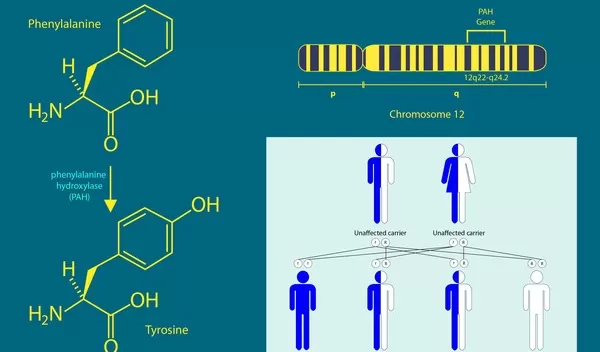
Discovery offers new treatment strategy for phenylketonuria
Researchers at The University of Texas MD Anderson Cancer Center have discovered that the presence of a long noncoding RNA, or lncRNA, called HULC regulates phenylalanine hydroxylase metabolism. HULC stands for Highly Up-regulated in Liver Cancer (non-protein coding).
The discovery, published in Science, could potentially lead to new treatments for certain patients with phenylketonuria.
Phenylketonuria, and its less severe variant hyperphenylalaninemia, are genetic metabolic disorders. Patients with the conditions are unable to convert the amino acid phenylalanine into tyrosine. Without treatment, the conditions can lead to brain damage, intellectual disabilities, seizures and behavioral or psychiatric disorders. To date, a protein-restricted diet and/or BH4 supplements are the only treatments available.
Long noncoding RNAs perform a variety of regulatory roles and biological functions in cells and do not contain protein.
The results of the U.S. National Science Foundation-funded study indicate that synthetic HULC has the potential to be a treatment strategy for patients with certain conditions related to lncRNA abnormalities. Scientists are advancing this research to examine its safety and efficacy in the laboratory and in future clinical trials.


